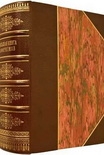Gluck by Diana Souhami (most interesting books to read .TXT) 📗

- Author: Diana Souhami
Book online «Gluck by Diana Souhami (most interesting books to read .TXT) 📗». Author Diana Souhami
The trustees agreed to the rent of Millers Mead when Bolton House was commandeered in September 1939. But the Auxiliary Fire Service moved out in July 1941, stopped paying rent to Gluck and left her again responsible for the rates. Left empty, the house suffered. Rainwater seeped in because the gutters were blocked with leaves. The whole place needed extensive repairs and there was a wrangle between Gluck, her Trustees and the Fire Service, about who should pay.
In the thick of the war, Gluck was responsible for the upkeep of three houses, income tax was ten shillings in the pound and her net monthly income had been substantially cut. Her cousin, Sir Samuel Gluckstein, one of her trustees, urged her to limit her expenditure to the absolute minimum. ‘I am not endeavouring to read you a lecture’, he wrote (while doing just that), ‘but I am endeavouring to help you to avoid getting into financial distress.’ (30 July 1941)
Her mother and brother were deeply involved in the war effort. The Meteor, awarded the MBE in the First World War for her work for Belgian refugees, again immersed herself in the fight for right. Frugality came easily to her. She closed up her flat in London, put her belongings in store, and lived in one room in the Cumberland Hotel, snatching meals as and when she could. (She lost two-and-a-half stone in the war years.) During the blitz she slept on a camp bed in the hotel corridor. For economy’s sake, she used scrap paper for writing letters. Her chauffeur went to make aeroplane parts, so she garaged her Rolls-Royce, handed in her petrol coupons and travelled by bus. She continued her work as a Justice of the Peace and worked avidly for charity. In London War Weapons Week she personally collected £27,000 in five days. Her son, now a Major after active service in France, worked in the army legal service and continued as an MP. He was intensely patriotic, an uncompromising negotiator and a hard-liner who was on Hitler’s death list in the event of German invasion. He advocated ‘blunt methods’ of reprisal bombing and opposed the notion that some towns and cities should be spared. At home he did a great deal to organize the reconstruction of the lives of refugee children. Neither he nor the Meteor wanted to spend much time corresponding with Gluck about her rent and rates.
The Fund made its discretionary decisions about financial help for the family in an ad hoc, democratic way. In the war years Gluck was overdrawing on her allowance by some £100 a year which invited consternation and reproof from the Trustees – and worried her too. ‘My finances are a little on the wrong side,’ she wrote to her mother (1 June 1942). She was genuinely unclear quite what her responsibility was over the upkeep of Bolton House. To boost her income, she wanted to put the furniture in store – if the house was empty, she was absolved from paying rates – and let it for the duration of the war. She wanted to keep on the studio in case she got commissions in London. The Trustees, or her brother certainly, doubted that she would use the studio until the war was over, advised her to save money by storing the furniture in the studio gallery and foresaw further problems if the house was let. Gluck wrote endless letters, with carbon copies to all and sundry, in part businesslike, true and accurate over detail, in part reflecting her current emotional hurt and insecurity and in part aggravating old wounds and resentments:
December 13th, 1941
My dear Luigi
You wrote to me in December l938 as follows: –
‘You have been told many times that there is no income apart from the Trust Funds available for the maintenance of Bolton House and your other properties. If the total income is paid to you, you must be responsible for the upkeep.’
You wrote on December 5th 1941 that: –
‘As the Trustees are responsible for the condition of the property, the Schedule of Dilapidations is their concern and I accordingly do not propose “to instruct Trevors to let you see it at once”.’
Though your use of the word responsible appears to be haphazard, and these two statements taken together appear contradictory, there is no doubt from your 1938 letter that I am expected to pay for the upkeep of Bolton House as my responsibility and as accounts I have had to pay prove; but from your letter of 1941 I am to gather that despite having to pay, I am not to be allowed to see that for which I am paying. The Schedule of Dilapidations, having direct connection with the upkeep of Bolton House, is very much my concern as well as that of the Trustees, and there cannot be any valid reason for refusing me sight of it.
I had to struggle for four years from 1934–1938 before getting a yearly statement of my financial position. My reason for wanting this statement was the same as for my requests now, to enable me to arrange my life with complete knowledge of my affairs. The Statement should have been a matter of routine and ought never to have become, as it did, a matter of lies, intimidation and a cause for grievance on the part of the Trustees against me …
The Meteor sent her a great deal of maternal advice, most of which went unheeded. ‘I cannot,’ she wrote (25 May 1942),
either understand or cope with this continual correspondence with copy letters to Louis and Mr Dyer, but I would like to make this perfectly clear … Today everybody’s income has been





Comments (0)